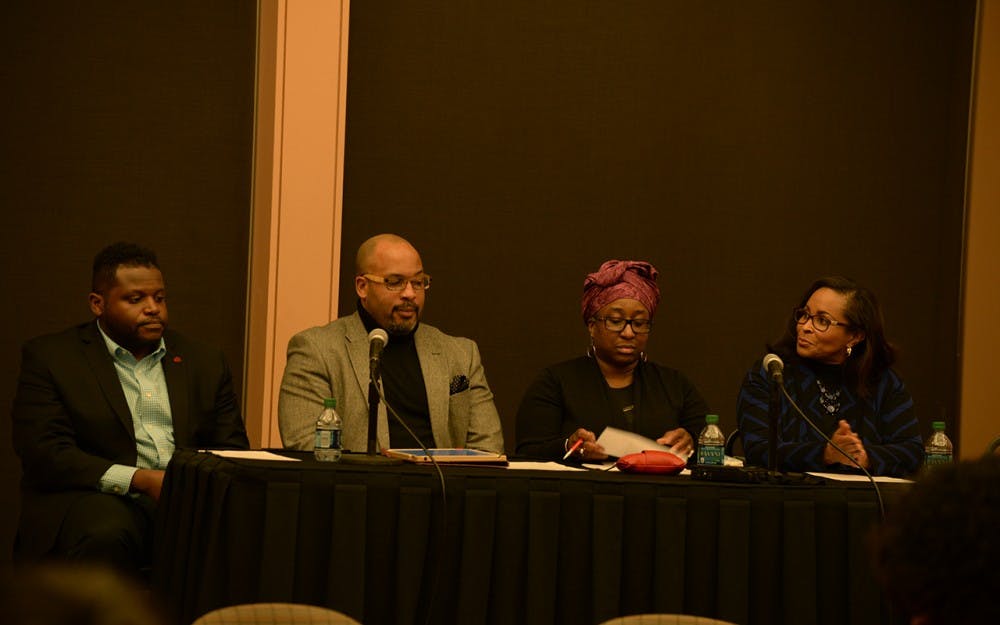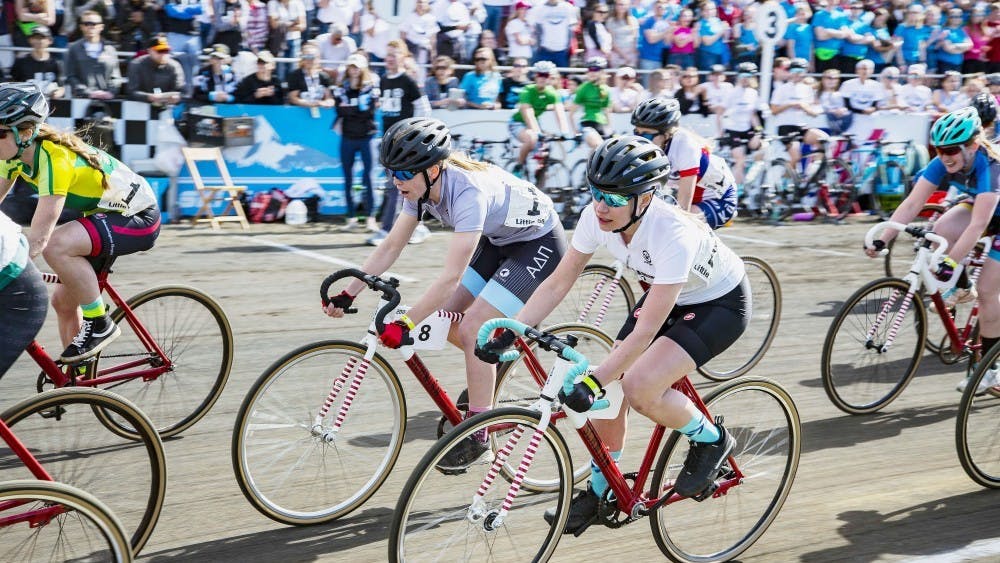A table of panelists discussed health and health care barriers in black communities Monday evening.
The event, “Black Don’t Crack,” took place in the Neal-Marshall Black Culture Center.
This event was organized by Neal-Marshall and the School of Public Health to increase awareness of public health issues facing black citizens. This panel consisted of Rory James, director of student diversity and inclusion for the School of Public Health; Rasul Mowatt, associate professor in the School of Public Health; Maria Hamilton Abegunde, visiting lecturer for the African American and African Diaspora Studies department; and Dr. Lori Thompson, a family health physician who works in Bloomington.
A common theme that was brought up throughout the discussion was access to health care. The panel discussed many different barriers to treatment such as transportation, insurance, work schedules and child care that can make it hard for people to access proper care.
“There may be a clinic,” Thompson said. “There may be a hospital, but are they open at the times that we can attend?”
Another barrier to proper health care they discussed is discrimination, which can come in many different ways. The panelists shared experiences where they have been discriminated against by physicians.
“There are definitely areas that do not accept certain types of insurance because they are trying to exclude certain populations,” Thompson said.
Mowatt explained that in a study done on hospital wait times black people, on average, wait significantly longer than their white counterparts. During the discussion many questions were brought up about the lack of trust among the black community and medical physicians. Many of the trust problems can be traced back to past transgressions against black people.
“There’s a lack of trust or confidence,” Abegunde said.
Many on the panel linked this distrust to historical medical tests that put black people at risk or even caused their deaths.
An example of this was with the Tuskegee syphilis study of 600 black men — 399 had syphilis and 201 did not. According to the Centers for Disease Control, these men were not informed of the study and, even after finding a cure, many of them did not receive the treatment.
In addition to the discussion by the panel, Brian Richardson, assistant director in the Office of Student Diversity & Inclusion, invited Community Capacity for Prevention and Education to conduct free HIV testing at Neal-Marshall.
The testing went from 9 a.m. to 1 p.m. Monday and will occur at the same time Tuesday. It takes about 30 minutes and is done with an oral swab, no blood work.
“It’s painless, and it’s quick,” outreach coordinator Olivia Humphreys said.
She said they are trying to break the stigma against HIV and encourage everyone to participate because they never know their status until they are tested.
Richardson invited them because he wanted Monday to be a day of wellness, he said.
Cody Thompson contributed reporting.






